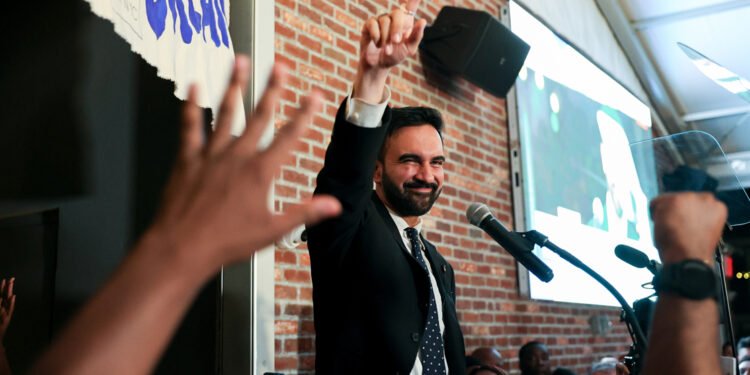Over one million rent-stabilized tenants await decision as Mamdani pushes to freeze rents, while Mayor Adams calls for “minimal, fair increase”

Shah J. Choudhury
New York | June 30, 2025:
The New York City Rent Guidelines Board (RGB) is set to vote tonight on proposed rent increases for nearly one million rent-stabilized apartments—a decision that could have sweeping implications for tenants and landlords alike.
The board is expected to approve a rent increase between 1.75% and 4.75% for one-year leases, and 2.5% to 6.25% for two-year leases, applying to leases beginning after October 1. The issue has drawn intense public attention and sparked strong reactions from city leaders.
Political Divide: Mamdani vs. Adams
Assembly Member Zohran Mamdani, a Democratic Socialist representing Queens, has reignited his “Freeze the Rent” campaign, calling for zero rent increases amid growing economic strain on working-class families.
“With wages stagnant and inflation still pressuring families, any rent increase is unacceptable,” said Mamdani. “We must protect tenants now—this could be their breaking point.”
Meanwhile, Mayor Eric Adams has rejected the idea of a rent freeze, arguing instead for a “modest and responsible” increase to ensure that small property owners can maintain their buildings.
“We must find a balance,” said Adams. “Tenants are struggling, but so are the small landlords who provide affordable housing. Neglecting one side will hurt both.”
Key Market Realities:
• Vacancy rate: Just 1.4%—the lowest in over 40 years.
• Past increases: Rents have risen 18% over the past five years.
• Landlord concerns: Some say they need at least 5% annual increases to cover maintenance and taxes.
The RGB’s final decision is likely to walk a tightrope between affordability for tenants and sustainability for landlords.
Analysis: A Political and Economic Crossroads
Tonight’s vote is more than a routine administrative decision—it is a litmus test for the future of New York City’s housing policy. Mamdani’s campaign has mobilized grassroots support across the city, framing the vote as a moral imperative. Meanwhile, Mayor Adams faces the challenge of preserving affordability while addressing concerns from the real estate and landlord sectors.
Experts say the outcome will not only impact rental rates—it may also influence the 2025 mayoral race, where housing justice is shaping up to be a defining issue.
Conclusion:
As the Rent Guidelines Board prepares to cast its vote, more than one million New Yorkers are watching closely. The question is no longer just how much rent will go up, but what kind of city New York wants to be—one that prioritizes tenant stability or one that maintains a traditional landlord-tenant balance.





















